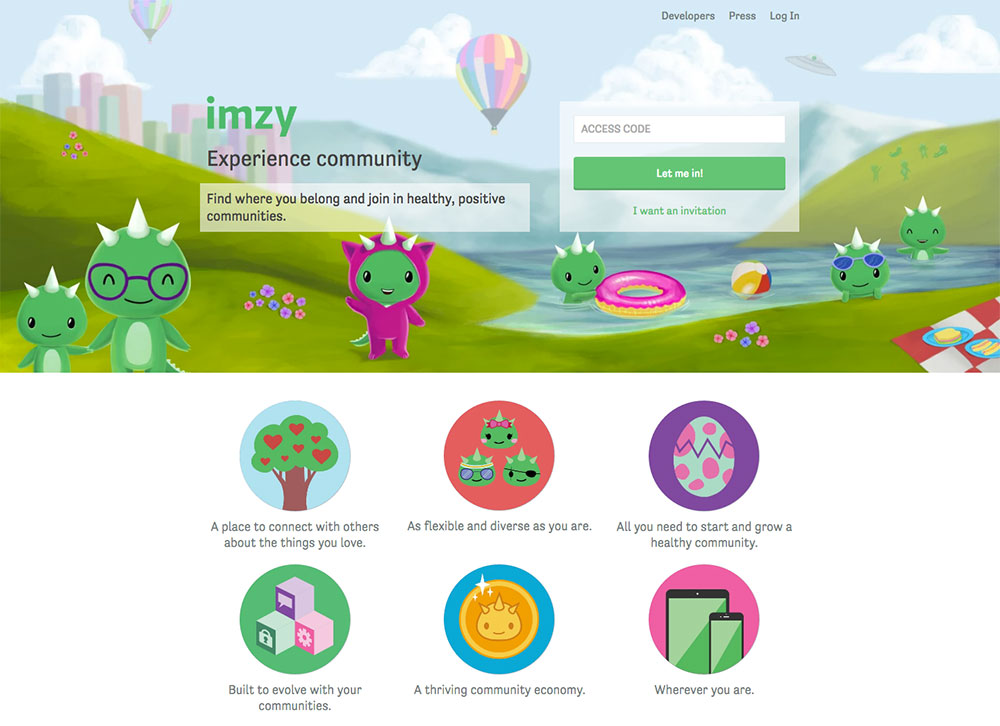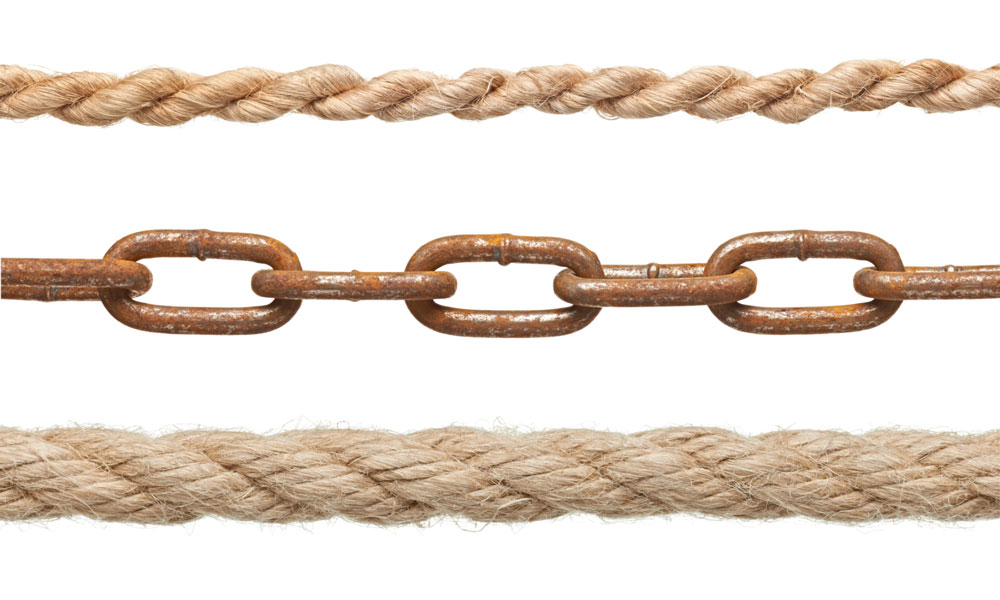
Starting an Online Community? Focus on the Foundation
Creating an online community from scratch requires a lot of planning, and failing to put the right foundation in place for the community to thrive can cause problems down the road. That's the thought process behind a fledgling competitor to Reddit, and it should be your strategy, too.
Nearly a year ago, the online community icon Reddit fell on hard times, with executives in conflict with its own users, who raised questions about why certain employees were getting laid off.
The network has bounced back from the controversy. But that didn’t stop the launch of a competitor, one that has an important goal: to ensure that its communities remain positive, healthy, and welcoming.
Imzy, a new startup currently in private beta, is building itself to be something of an antidote to some of Reddit’s not-so-fun places, basically taking the stance that the best way to encourage stronger communities is to build the communities slowly and carefully. The founder, Dan McComas, came from Reddit, where he helped found one of the social network’s most popular features, Reddit Gifts, a community project that Reddit eventually acquired.
McComas, who eventually rose up the ranks to become Reddit’s senior vice president of product, was fired in the wake of the controversy that arose around the layoff of a popular moderator, Victoria Taylor.

Speaking to The Information last week [subscription], McComas emphasized that the goal of his latest startup was to learn from the mistakes of its larger competitors, which have struggled to maintain a strong community tenor as the audiences grow to monumental sizes.
“When they reach scale they find these problems and eventually try to address them, but you can’t address that in retrospect,” McComas said.
In an effort to address things early, Imzy is growing slowly, inviting a handful of people at a time to the roughly 400 communities that have started up so far and emphasizing a positive tone in the interactions it drives. The group is hoping to work with popular personalities in areas such as feminism, as well as popular gamers on networks such as YouTube and Twitch, to take part.
And much like the bitcoin-associated ZapChain network I highlighted last year, the network plans to monetize through a system of tipping, and won’t run ads.
This strategy may or may not work—it’s too early to say, honestly—but the approach nonetheless highlights something important. Community is a hard thing to get right, and often it’s the decisions you make at the beginning of the community’s existence that set the tone for its long-term path.
So, moving past Imzy, the question I have is this: If you’re starting fresh, how can you get this right on your side of things? A few important tips to start from:

(iStock/Thinkstock)
Don’t just build for yourself. Bring everyone else on board.
In an interview with Inc., GeniusShared CEO and SOBCon founder Liz Strauss suggested that it was important that you not take the “if you build it, they will come” strategy to online community strategy. Instead, Strauss suggests, it’s more like a barn-raising: Everyone in the community needs to be involved in making it a success, and you need to adapt your approach to reach those people. “When we reach out and talk to people about our compelling idea, the social-media community responds,” Strauss told the magazine. “They let us know what works for them and what doesn’t.”

(iStock/Thinkstock)
Build a community from an existing bond.
Feverbee founder Richard Millington is an expert at this whole community thing, but even he doesn’t recommend just shoving something out there without ensuring there’s a seed of interest that can be capitalized upon. “You don’t create the interest, you create the platform that epitomizes it,” Millington wrote in 2010. “It’s important you don’t try to create the raison d’etre. i.e. Don’t try to persuade non-swimmers to become swimmers and join your community, just focus on persuading enthusiastic swimmers to join. Most brands stumble at this stage.”

(iStock/Thinkstock)
Just because a bond exists doesn’t mean they know you do.
Taking advantage of an existing interest is a great way to build a community, but ultimately, you have to ensure the people you want in that community know you exist. In a 2012 piece by Content Marketing Institute Contributor Michael Silverman, he highlights the groundwork of the the consumer review site Viewpoints, which worked to draw interest from passionate reviewers prior to its launch. “In the beginning, we reached out to people we found in other online venues who were passionate about reviews,” founder Matt Moog explained to Silverman. “We asked them for input, and they were happy to help. After all, these are people who have strong opinions and don’t mind writing about them.” Those people became Viewpoints’ earliest users, and they helped to populate the site with content when it was just getting off the ground. And they helped drive the platform’s ultimate success.

(iStock/Thinkstock)
Make sure your community managers are great storytellers.
Community managers, the paid moderators who lead your community interactions, are your face to the community as a whole, and the best ones know how to tell stories 12 ways from Tuesday. And their job is especially important when your community is fledgling. Forbes columnist Blake Morgan last year highlighted the importance of having a community manager who can tell an amazing story or two. And it’s key that they tell great stories. “Community managers have no shortage of content ideas to draw from considering their role,” Morgan explained. “While topics matter, style and delivery are equally important. Good storytelling doesn’t always mean lengthy. Some of the best storytelling is very succinct.”

(Photodisc/Thinkstock)
All employees should know something about community upkeep.
The online community management platform Socious says you’ll have a better shot at building a stronger community if everyone in the organization is on board, in big ways and small. “Online communities do not just belong in the domain of the community management team,” the company’s Joshua Paul wrote in 2011. “Spread the wealth of customer interactions and the workload by making sure your entire customer-facing team feels comfortable using your online community to engage customers or members.”
Any other tips you think are worth knowing when it comes to online community? Share them in the comments below.
(iStock/Thinkstock)






Comments